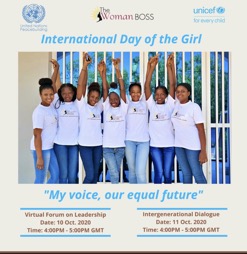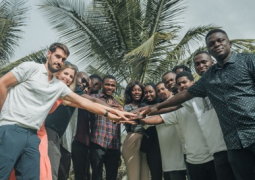
The panel was held on the theme- ‘Putting girls' rights at the center of programmes and policies - commitments to champion girls' rights.’ The activities were chaired by young girls from different walks of life.
At the event, Armand Gnahore, deputy representative of UNICEF, reminded that girls should be allowed to participate in events where their voices must be heard.
He made reference to the theme of this year’s commemoration, adding that the theme has been carefully chosen to invest and highlight the rights of girls, leadership and their well-being.
“As leaders, they must speak out and be part of the decision-making.” he added.
He emphasised that it is important as it shows the need for all decision-makers starting from the government, lawmakers, civil society organizations, and other partners, to give priority to the needs and voices of the girls when they are developing their programs.
“Talking about women and girls in The Gambia is considering half of the population.” he added.
Gnahore further revealed that as leaders, they must be able to speak out and be part of the decision-making.
“The girls in The Gambia like in many other countries are struggling every day to have a better life and the number of obstacles they face every day must not discourage them from being the present and future of the nation.”
He maintained that when government invests not only in education, but also other basic services, it allows young people to act as leaders and to be able to amplify what they are doing.
This, he added, will also enable their representatives to know what is happening and to be part of what they are doing.
“Looking at the recent results of the performance of the girls at the secondary school level, we can easily imagine that the steps that are being made would enable us to reach the ambition of empowering girls to be the leaders of tomorrow.” UNICEF rep pointed out.
Fatima Sonko on behalf of the resident representative of the UNDP, said girls have an essential role to play as active agents in the world, saying International Day of the Girl Child is set aside to renew commitment to investing in girls' rights, thereby creating opportunities and empowering them to reach their full potential.
She observed that in many parts of the world, girls face numerous challenges including gender-based discrimination, limited access to education, early marriage, and violence.
These challenges, she added, must be met with determination and resolve.
“We all have a moral and ethical duty to break down these barriers that hold girls back and impede their progress.”
Sonko maintained that empowering girls and investing in their rights and wellbeing is not just the right thing to do, but a strategic imperative for the development of every society, the Gambia included.





